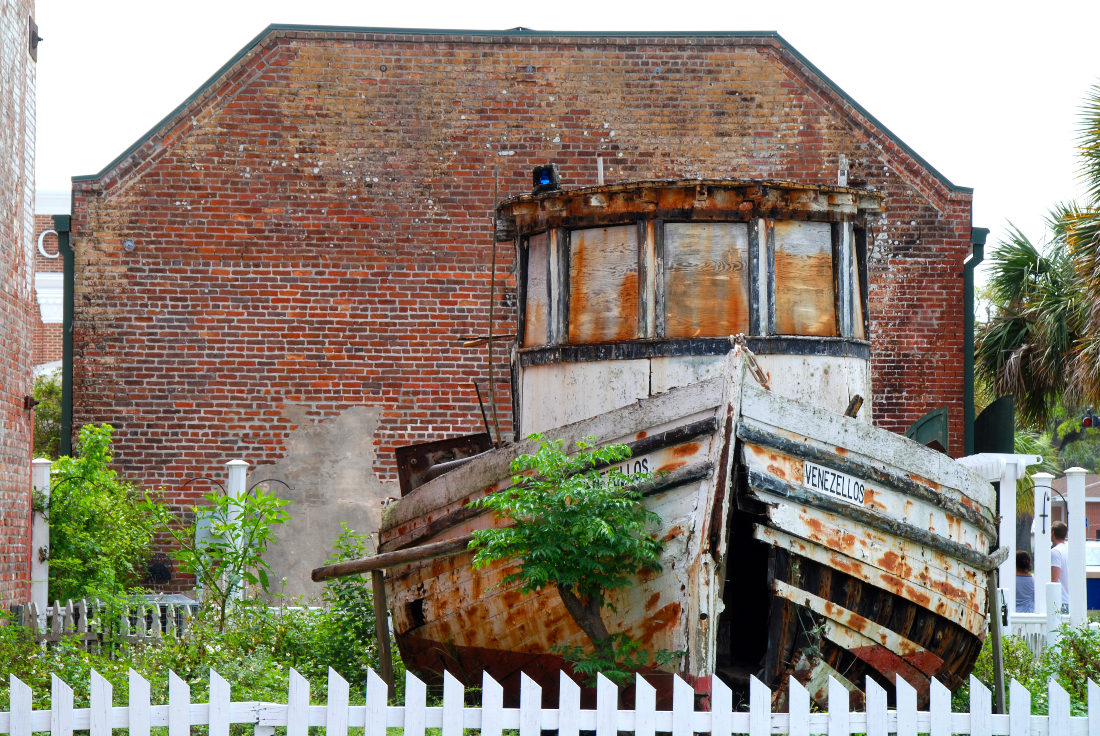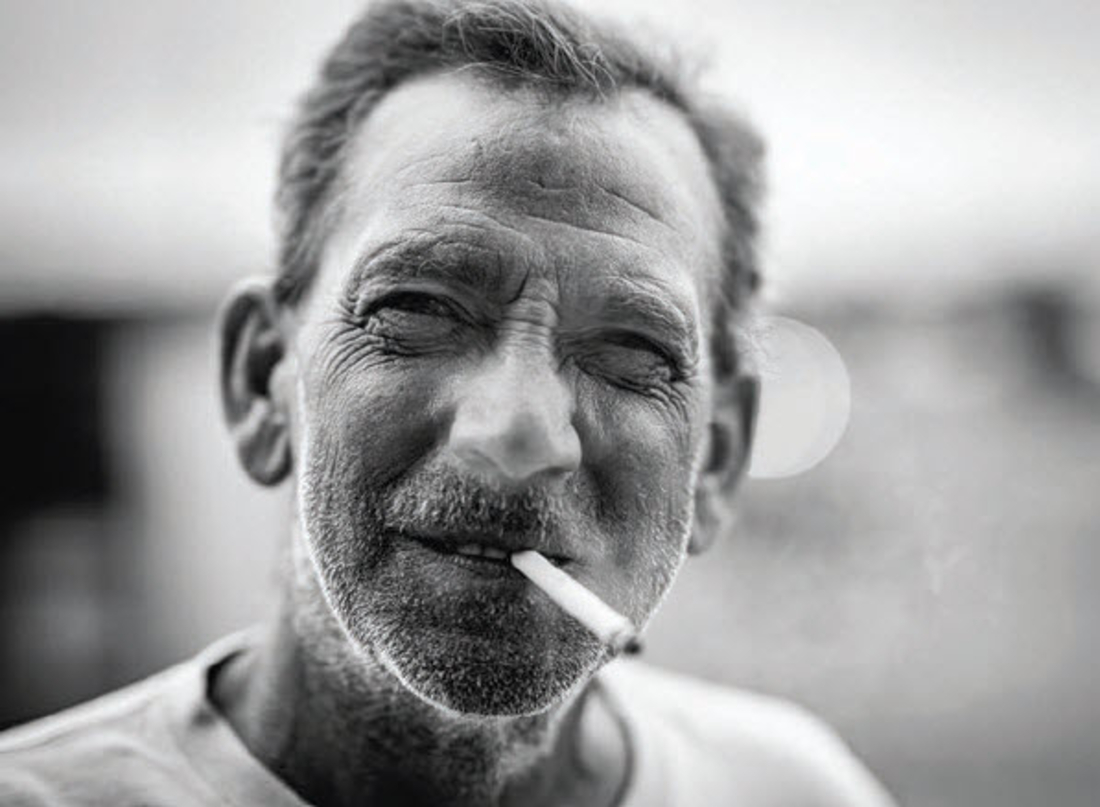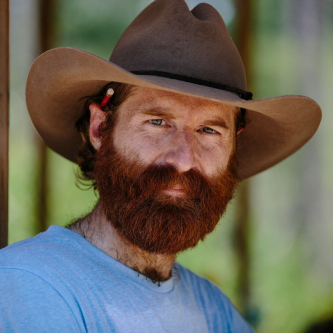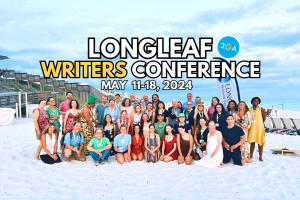


If you were to ask me what Heaven looks like, I would tell you. It looks like Apalachicola, Florida. Visit Apalach in the late afternoon when the sun is sinking. Go downtown and look at the brick storefronts. You’ll see what I mean.
Walk along the docks where trawlers are moored behind 13 Mile Seafood Market on Water Street, a place that’s been selling wild oysters since the ‘50s. Oysters are the main industry here.
At least they were.
“It’s basically like a big mill is closing down,” said an elderly local man. “Ain’t no boats out there. The bay’s empty. The oystermen are gonna be hurting.”
He is of course talking about the closing of the oyster beds. The Florida Fish and Wildlife Conservancy Commission recently made the decision to stop harvesting oysters in Apalach.
It was a blow to the town, but vital to the health of this brittle Floridian ecosystem. This exhausted bay is in serious trouble.

“We’re not just looking at it from an oyster perspective, but from a system perspective,” said Dr. Felicia Coleman, part of an Apalachicola Bay initiative. “How healthy is the Apalachicola Bay? And that’s the problem.”
Outsiders might not care about what goes on in a podunk oystering town, they have their own lives to worry about. But a lot of sunburned oystermen just lost their livelihoods. And it hurt.
This will be Franklin County’s first non-oystering period since Apalachee and Timucua natives began gathering oysters in these waters.
A few years ago, this bay was producing about three million pounds of yearly oysters, a crop worth about nine million bucks.
Ninety percent of Florida’s wild oysters came from this fleck-on-the-map town. Ninety.
And there’s a reason these bivalves are so coveted. Because they will blow your mind.
A few years ago, I was in a fancy seafood joint in Saint Louis, Missouri, of all places. I was very homesick for Florida. My friends ordered oysters. I tasted one and almost wept because it tasted too familiar.
I asked the waiter where the oysters were from.
The waiter couldn’t pronounce the name of the town printed on the shipping carton, so he just pointed to the label. Apalachicola.
I ate so many oysters I had to be carried home in a wheelbarrow. Homesickness will do that to you.
“It’s a shame,” says an Apalach woman who was shopping downtown, wearing a surgical mask. Her voice was muffled. “First it’s COVID, now this. What else could go wrong in this world?”

It’s been a tough year.
Shannon Hartsfield is a fourth-generation oysterman. He comes from commercial fishermen who have saltwater in their blood and barnacles on their shoulders. He fully supports the recent decision. But it’s bittersweet.
“When I was 12 years old,” says Shannon. “My dad started giving us one dollar a bag for what we caught. We was always on the water with my dad. I was raised on an oyster boat.”
But you won’t see kids hoisting oyster tongs from the bay water anymore. Not for a long time. Possessing tongs for capturing wild oysters will be a misdemeanor, punishable by 60 days in the clink. This water is off-limits.
This heaven-like town is a special place to a lot of Floridians like me. We Panhandle dwellers live among 24-hour tourism. Our cities are overrun with families, kids, and frat boys with coolers.
So when we go on vacation, most of us want to leave tourism behind. We want to travel backward in time by about 150 years. We visit Apalachicola.
We drive along the water in hopes of seeing the ratty oyster boats scattered on the bay like bath toys. And we fall in love with Florida all over again.
I used to work in a restaurant kitchen in Destin, alongside a guy named Will. He was a former oysterman. We would shuck oysters together. He could shuck about 2,632 before I finished one.

We’d pop shells with oyster knives, seated on buckets, while shivering in a walk-in freezer. Him, with a Marlboro Red dangling from his mouth. Me trying not to stab myself and contract a deadly viral infection.
He told tales of oystermen, about the long hours, the painted sunsets, and the pop-up thunderstorms. And it all sounded like an Ernest Hemingway novel.
“I hate oysters,” Will admitted one night. Then he slurped an oyster and chased it with what looked like kerosene. “But oysters paid for my car.”
That’s how people are in Apalach. Theirs is a world of its own. An old place. One that looks the same as it did a century ago, back when automobiles were novelties and mules were given as wedding gifts. When the drugstore was Buzzette’s, and the John W. Callahan steamboat sat in the harbor like a floating wedding cake.
“It’s the end of an era,” says one middle-aged waitress. “When customers order a dozen halfshell now, they might get Texas oysters.”
Even so, there is not a feeling of dread in this town. In fact, it’s an upbeat mood. There are no long faces. No self-pity. There is cheerfulness in the air. Maybe it’s the satisfaction that comes with knowing they’re protecting a wonderful bay from oblivion. Maybe this is environmentalism at its best. Either way, it’s an incredible thing.
“People are full of hope,” says Dr. Coleman. “They understand this is like the last shot. If this doesn’t happen now, it won’t exist.”
The oyster beds may be shut down, but the buoyant spirit of Apalachicola is still alive and kicking. And like any good preacher will tell you, there will never be a ‘closed’ sign on Heaven.
Celebrating Oysters at Shunk Gulley!
Who’s ready to throw back some oysters at Shunk Gulley Oyster Bar ?????? Happy #NationalOysterDay ~ https://30a.com/shunk-gulley-name-story
Posted by 30A on Thursday, 5 August 2021




